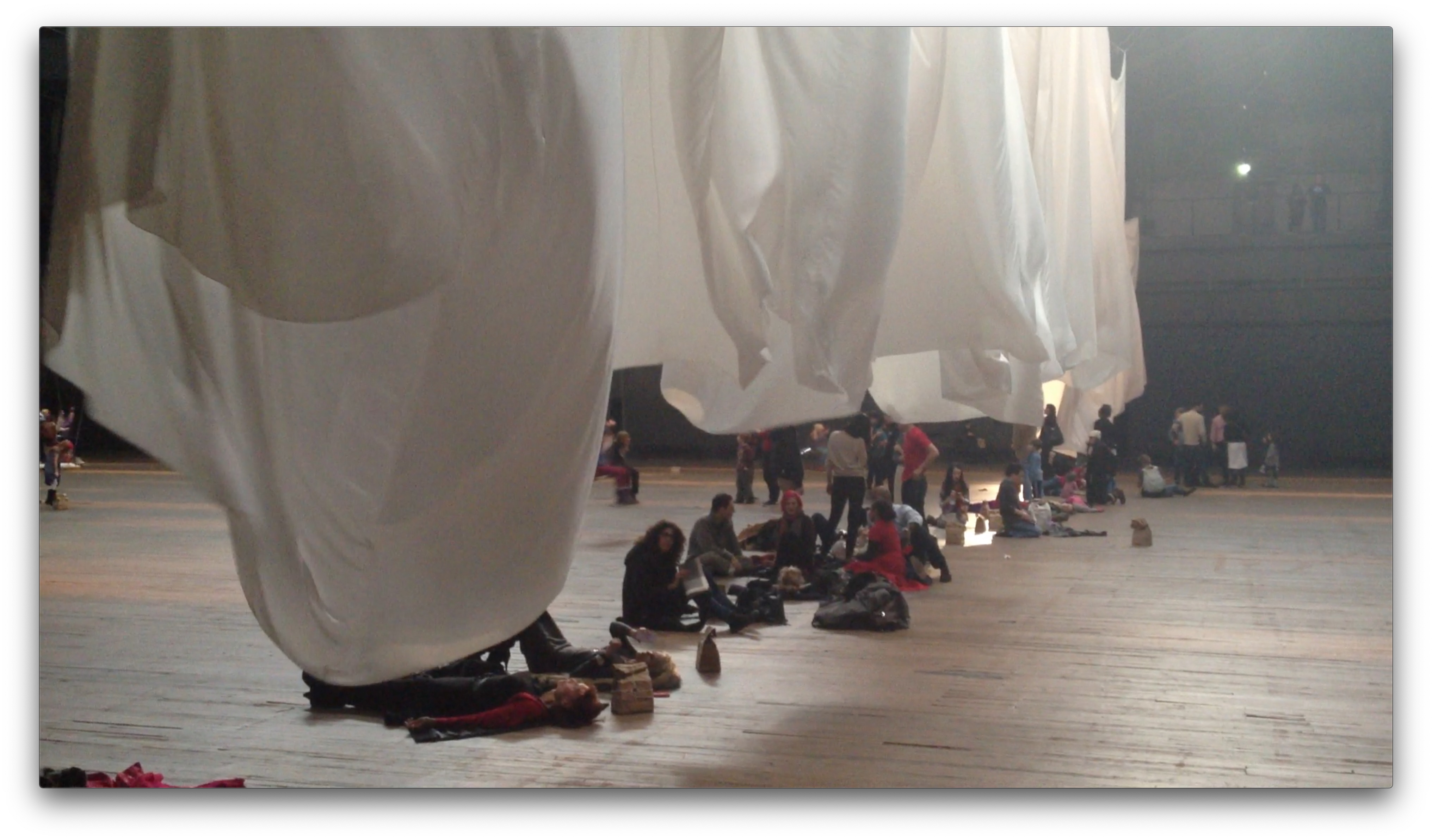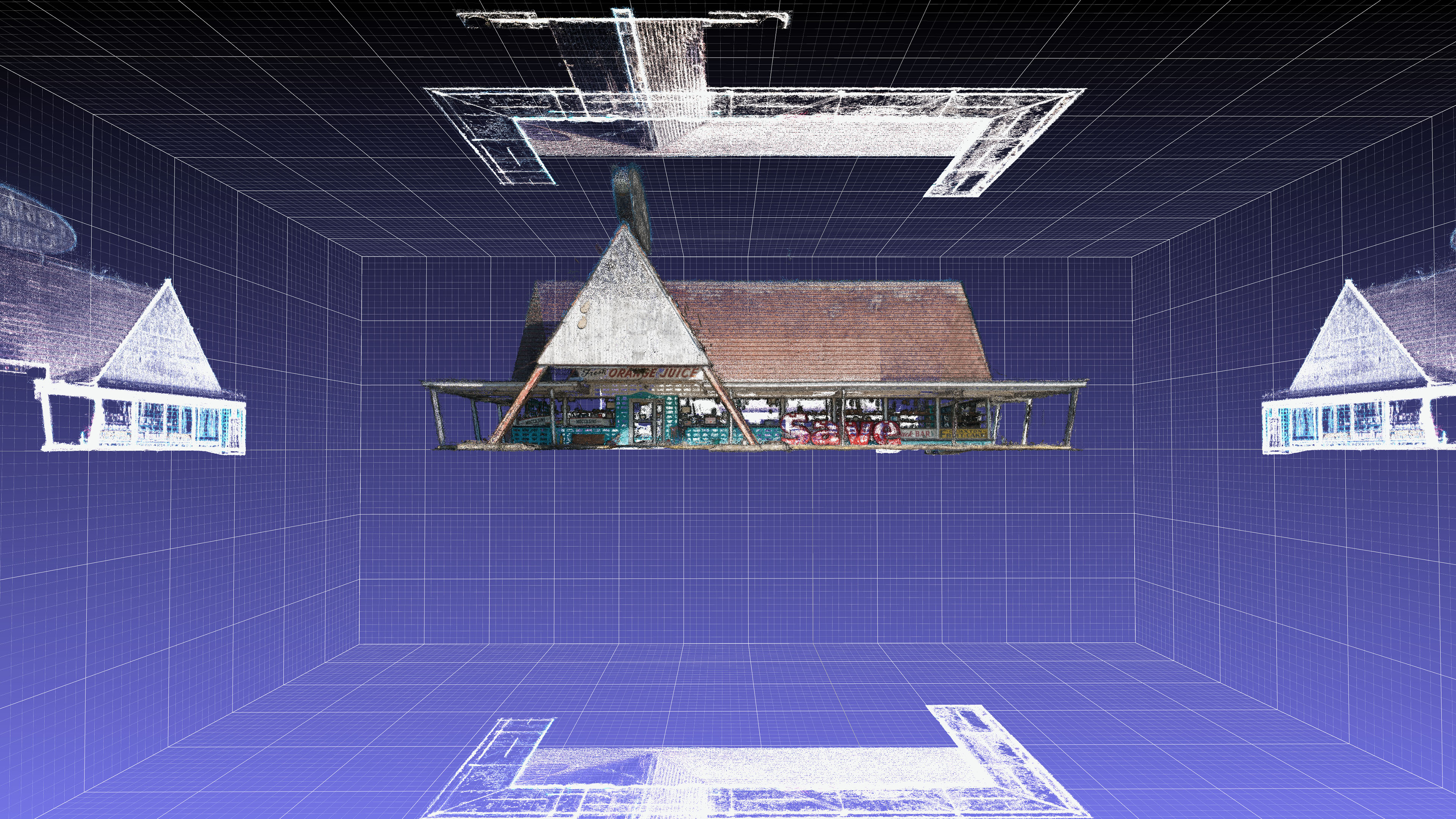
Installation Using Digital Processes
REACTIVE ENVIRONMENTS
installation as technology.
Years taught: 2007-2019, 2021
-
UF Catalog
Students explore site specificity and intervention in 3D space through installation, using digital media to understand concepts such as sequence, narration, scoring, interactivity, motion, and recursion.
-
Course Description
ART 4848C/6849C Installation Using Digital Processes develops the students understanding of installation as a medium. We will contextualize installation with respect to other forms of aesthetic experience and identify distinct categories of behavior that define various approaches to the medium. Not only will we learn about historic and contemporary installation, but we will look at ways in which installation relates to technology. As far back as the Surrealist Exhibition of 1938, installation involved the use of technology to create reactive/responsive environments. We will investigate ways that digital processes can be used to enhance practice as well as means with which digital processes might become a core component of the work. Finally, we will survey various tools and methodologies that might be used in the production of installation art. Course content is project-based and adapted to the skills of the artist/s, so your primary task is to challenge your own abilities and push the boundaries of your current knowledge.
-
Course Details
Credits: 3; Prereq: Must be BFA Art or BA Art or BFA Graphic Design major and must have passed sophomore portfolio review, or with permission of faculty.
Jack Stenner, Ph.D Associate Professor, Art + Technology Office: FAC 304 Office Hours: Th 2:45pm-3:45pm 352.213.0997 stenner@ufl.edu Undergraduate: ART 4848c Graduate: ART 6849c Class: ONLINE - See UF Canvas for Zoom links/info. Time: T/Th 8:30AM - 11:30AM Website: https://jackstenner.com/teaching/installation Listserv: Class contact will be made through UF Canvas.
-
LearningThings you might learn/explore:
- Site-specific intervention
- Create environments that respond, dynamically to the participant
- Tactical media works
- Multi-channel, synchronized video installation
- Telematic works that combine physical and virtual media
- Tangible media installations
- Generative experiences
- Participatory works that collect data
- Surveillance
- and more....
Tools you might use to enable the list above:- Cycling '74s Max/MSP/Jitter [or PD = open source variant]
- Game Engines: Unreal, Unity3d, Torque
- Programming: Processing, Java, C#, etc.
- Video Streaming
- Form [static and dynamically driven]: Maya, Rhino, Blender
- Rapid Prototyping/manufacturing, Industrial Design: The FabLab
- Microcontrollers and Sensors: Arduino, Kinect, webcams, touch, RFID, etc.
- Network/Database: Apache, PHP, MySQL, Node.js, etc.
Objectives
Over the course of the semester, the goal is to help you develop your art practice in the following ways:
Context
Become aware of the history and material foundation of installation.
Synthesis
Learn the appropriate integration of digital processes.
Criticality
Engage meaningful discussion and develop a sense of criticality.
Awareness
Gain an awareness of related work in the field.
Communicate
Propose ideas in a way that clearly demonstrates intent.
FUN
Have FUN!
-
Attendance
Requirements for class attendance and make-up exams, assignments, and other work in this course are consistent with university policies that can be found at:
https://catalog.ufl.edu/ugrad/current/regulations/info/attendance.aspx.Because of Covid-19, classes will be held via Zoom this semester. Links to the Zoom meetings are located on the course Canvas page. It is critical that you attend class in this manner and at these times in order to keep up with the course. Unless the meeting is being recorded or, due to some other extenuating circumstance for which you receive approval from me, you are expected to be virtually present with your camera on and your name displayed.
-
Grades
Grades will be based 90% on projects, reviews, and class assignments. 10% will be based on class participation. See below for the breakdown. Participation means you are expected to constructively criticize your peers and participate in class discussions. Unless the meeting is being recorded or, due to some other extenuating circumstance for which you receive approval from me, you are expected to be virtually present with your camera on and your name displayed. Failure to do so will impact your participation grade.
Detailed, specific info on grades and grading can be found at:
https://catalog.ufl.edu/UGRD/academic-regulations/grades-grading-policies/Notwithstanding the description of grades above, generally, grades are conceived in this way:
A(Excellent) Student’s work is of exceptional quality and the solutions to problems show a depth of understanding of the program requirements. Project is fully developed and presented well both orally and graphically. Student has developed a strong and appropriate concept that clearly enhances the overall solution. The full potential of the problem has been realized and demonstrated.
B(Good) Student’s work shows above average understanding and clear potential. All program requirements are fulfilled and clearly and concisely presented.
C(Fair) Student’s work meets minimum objectives of course and solves major problem requirements. Work shows normal understanding and effort. Quality of project as well as the development of knowledge and skills is average.
D(Poor) Student’s work shows limited understanding and/or effort. Minimum problem requirements have not been met. Quality of project or performance as well as development of knowledge and skills is below average.
F(Failure) Student’s work is unresolved, incomplete and/or unclear. Minimum course objectives or project requirements are not met, and student’s work shows lack of understanding and/or effort. Quality of project or performance is not acceptable.
Instructor’s evaluation of student’s interest, motivation, attendance, proficiency and overall development or improvement during the semester will be taken into consideration in determining the final course grade. This syllabus is subject to refinement and development throughout the semester based on feedback and class interaction. Policies and grading criteria are absolute and will not change. Any substantial changes will be discussed with the class prior to implementation.
Grading breakdown:
Artist/Installation Presentation = 20% Proposal = 20% Experiential Prototype = 20% Installation = 20% Essays = 10% Participation = 10%
-
Evaluation
Students are expected to provide feedback on the quality of instruction in this course by completing online evaluations at https://evaluations.ufl.edu. Evaluations are typically open during the last two or three weeks of the semester, but students will be given specific times when they are open. Summary results of these assessments are available to students at https://evaluations.ufl.edu/results/.
-
Covid-19
Due to Covid-19, the course this semester will be delivered synchronously, online. You will join the class at the prescribed time via Zoom. If you have hardware or software issues, you need to contact Teaching Lab Specialist, Michael Christopher, and coordinate use of equipment provided on campus. Our class sessions may be audio visually recorded for students in the class to refer back and for enrolled students who are unable to attend live. Students who participate with their camera engaged or utilize a profile image are agreeing to have their video or image recorded. If you are unwilling to consent to have your profile or video image recorded, be sure to keep your camera off and do not use a profile image. Likewise, students who un-mute during class and participate orally are agreeing to have their voices recorded. If you are not willing to consent to have your voice recorded during class, you will need to keep your mute button activated and communicate exclusively using the "chat" feature, which allows students to type questions and comments live. The chat will not be recorded or shared. As in all courses, unauthorized recording and unauthorized sharing of recorded materials is prohibited.
-
Materials/Fees
Required materials will depend on the proposed projects submitted by students. Students will design projects and set budgets based on the goals of the work. See the Schedule of Courses for any attendant fees related to this course.
-
Readings
Readings will consist of .pdfs and URLs available on the class website.
-
Policies
Be sure to read the University of Florida Policies regarding academic honesty, the honor code, accomodations for students with disabilities, wellness, computer use and acceptable use policy, disruptive behavior, health and safety, email and communications, and late work policy.
Projects


